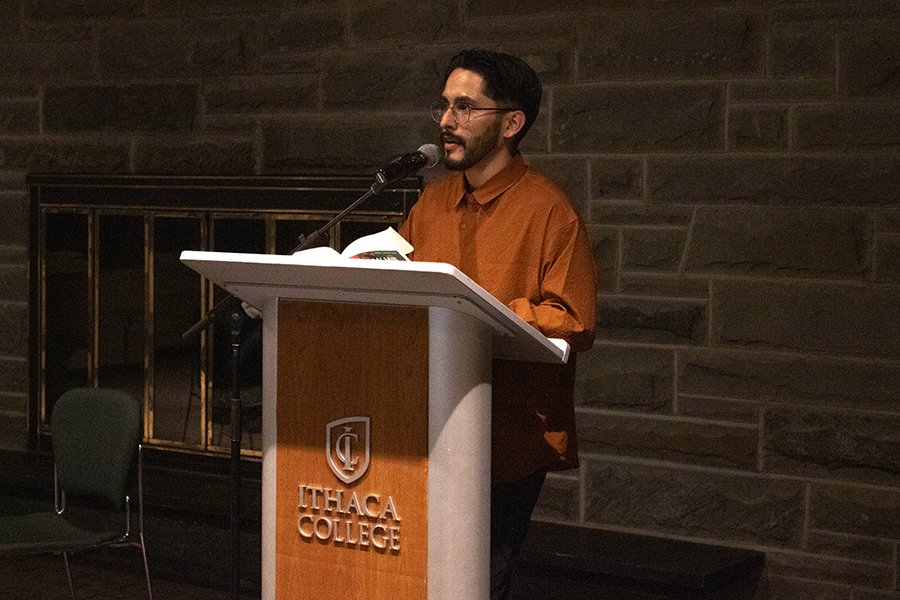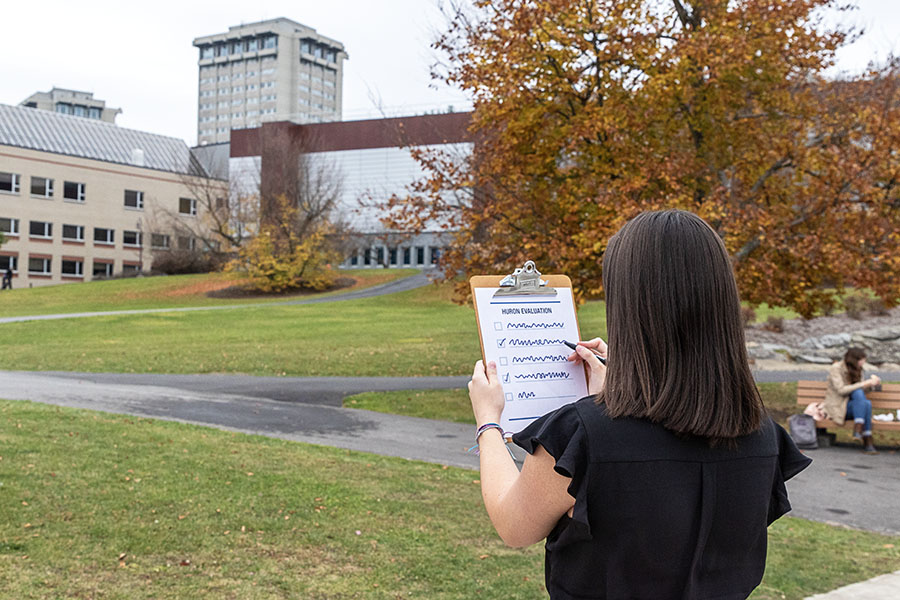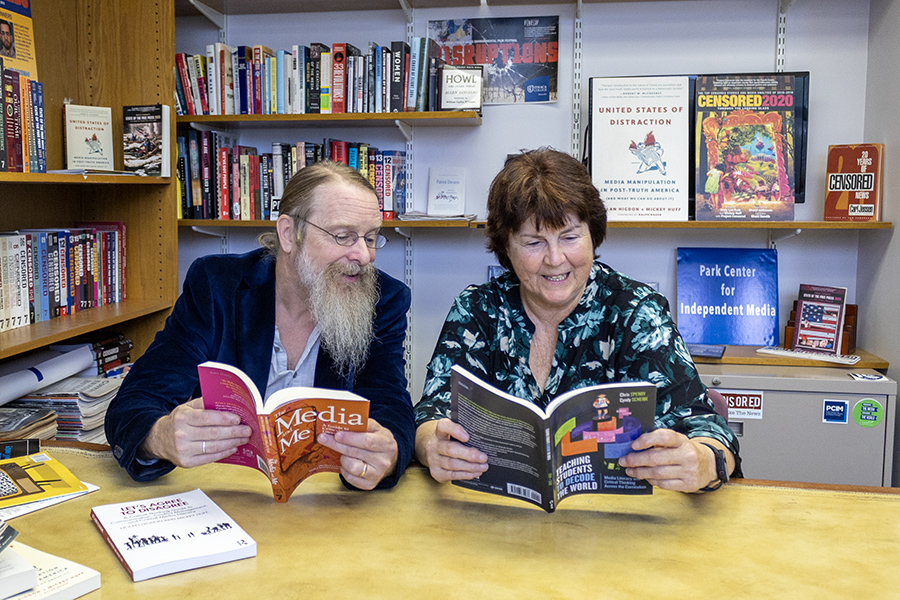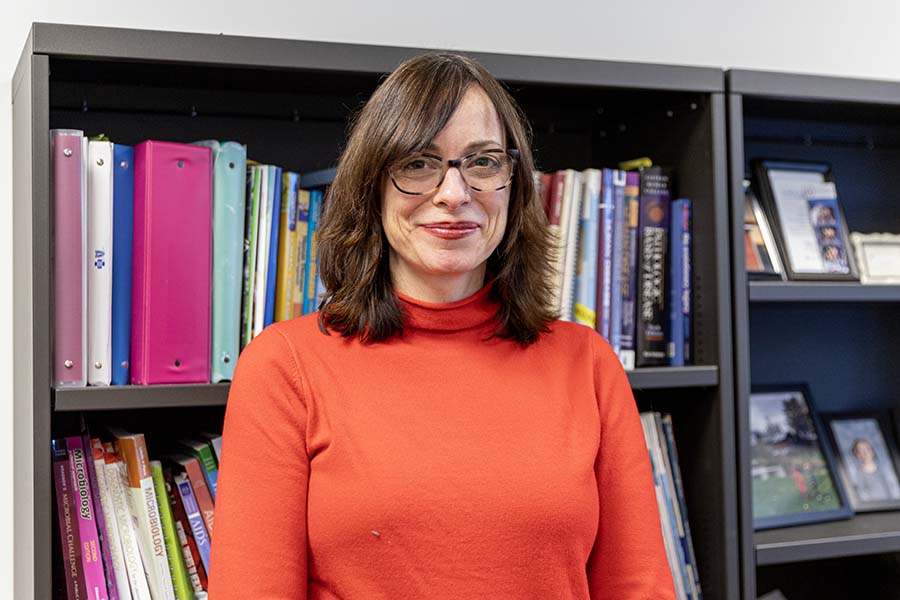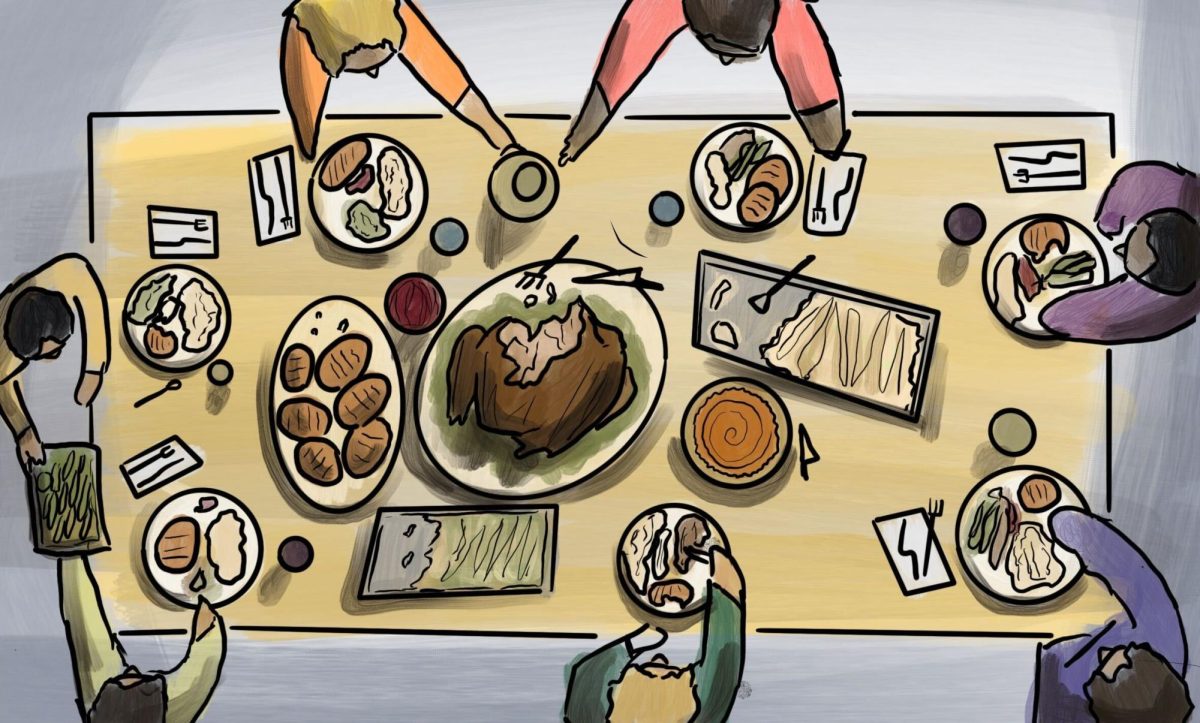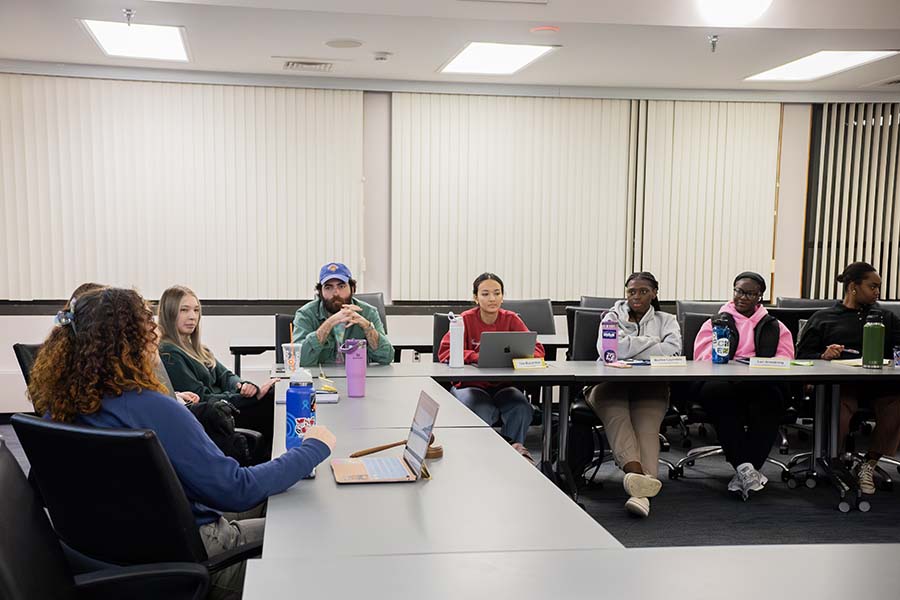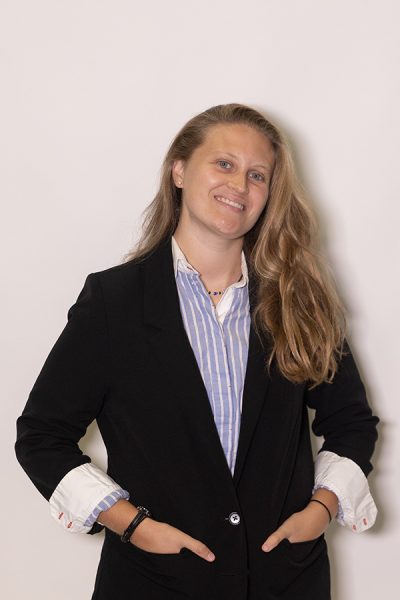Andrés Ordorica ’11 read four parts of his debut novel, “How We Named the Stars,” and gave advice to about 50 students and faculty members who attended the reading Feb. 1 in Clark Lounge. Earlier in the day, Ordorica also engaged with senior students in the Departments of English and Writing by visiting Wendy Dann’s, professor and chair in the Department of Theatre Studies, senior capstone class.
Dann said the event was made possible because Ordorica was doing a book tour in New York City on Jan. 31 and was able to visit the college as well. She said she hoped students who attended the event would be able to see that it is possible to create a meaningful life and create art after college.
“I thought, ‘Oh, this is perfect for our students who are both theater and English majors or theater and writing majors to talk to someone who is now 13 years out about what is the pathway,’” Dann said. “I think it’s just really important for students to be able to say, ‘That could be me in 10, 15 years’ and to see what is possible.”
The author’s book is based on two characters, Daniel and Sam, and is an untraditional love story. Ordorica said the novel also serves as a unique read because of its second-person narrative between the two since Sam’s death is mentioned in the first line of the book.
“By virtue of Sam passing, they will not end up together,” Ordorica said. “But I still wanted to allow some joy and heart to this. Daniel, as he is processing his grief, is still experiencing wonder and joy, what this really intense year was for him. And I think that that decision came from really wanting to honor the bones of the story but realizing doing it in real-time is just not doing justice.”
Ordorica said that while the book is a letter from Daniel to Sam, its main premise is not entirely about grief. He said his immediate inspiration for writing the book was to write a story about growing up and the transformation from young adulthood to adulthood and entering college.
“I have this deep fascination with the idea of being a freshman at university,” Orodrica said. “[There] is that weird sort of transition that happens on the last day of your 17th birthday at 11:59 p.m. to midnight, and you become an 18-year-old, and in the U.S., we say that you are an adult and you gain all of these rights. So this novel is an exploration of what it is to become an adult.”
Ordorica said that after being long-listed and then shortlisted for the Morley Prize for Unpublished Writers of Colour, he was able to connect with mentors who helped him develop the character and voice of Daniel, the protagonist.
“One of the bits of feedback I was getting on an earlier version was … that Daniel’s voice [wasn’t] working,” Ordorica said. “The narrative voice [was] not matching [how the character spoke] and it just blew my mind. I wasn’t someone who had gone through [a Master of Fine Arts degree]. So I didn’t have the language of writing, and I didn’t understand how a character’s voice could be different from their narration.”
Junior Meaghan Burke said she read Sandra Cisneros’ book, “The House on Mango Street,” a book Ordorica said inspired him when he was in college. Ordorica said it was the first book where he read about people like himself.
Burke said that hearing that from Ordorica made her think about the importance of public readings being in person.
“It was a moment where my classes came to life when I wasn’t expecting it,” Burke said. “It reminded me why I want to be an English major and why it’s so important to come to events like this, especially post-COVID. … To see a crowd and to remind yourself that there are more people out there to talk about readings, especially the topic about queer BIPOC authors and queer BIPOC characters is so important to discuss.”
While waiting in line to buy Ordorica’s book, Burke said English majors were encouraged to attend the event, but that the college should cross-list events like these to more majors and open up events like these to have greater attendance.
“I feel that so many authors are assumed to be part of only English or only writing,” Burke said. “To have more people interested in these events could also introduce people to reading books that they might not think they would like or this also could be someone’s new favorite book.”
Students like senior Colin Nacion benefitted from having an event that was geared toward creative writers. Nacion was a student in the capstone class Ordorica visited earlier in the day.
He said that learning about Ordorica’s approach to writing after college put him at ease about working creatively after graduation.
“I did ask him about what the process is because I feel like that’s something that a lot of people don’t talk about,” Nacion said. “He also had a lot of insight on not feeling like you have to have everything figured out soon after college. He was talking about when he was 25 and feeling like he didn’t have everything figured out although some other people did and that was really inspiring and resonated with me.”
Nacion said that meeting Ordorica and hearing the debut novelist’s experiences who attended the same college as him made him more hopeful about life after college.
“There are so many books out there so you don’t think about how many people [can become authors] and the fact that he’s an alum from Ithaca College, it’s that much closer in relation,” Nacion said. “It feels a lot more doable.”


